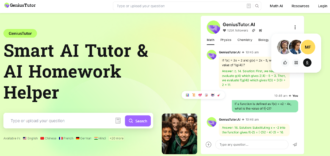7 Advantages of Online Education and Home Learning
- 1 Top 7 Advantages of Online Education and Home Learning
- 1.1 1. Flexibility and Convenience:
- 1.2 2. Access to a Variety of Courses:
- 1.3 3. Cost-Effectiveness:
- 1.4 4. Individualized Learning Experience:
- 1.5 5. Enhanced Interactivity and Multimedia Learning:
- 1.6 6. Geographical Flexibility:
- 1.7 7. Career Advancement Opportunities:
- 2 Future of Online Education and Home Learning
- 2.1 1. Technological Advancements and Virtual Reality Integration:
- 2.2 2. Artificial Intelligence for Personalized Learning:
- 2.3 3. Continued Growth of Online Degrees and Credentials:
- 2.4 4. Collaborative and Social Learning Platforms:
- 2.5 5. Microlearning and Bite-Sized Content:
- 2.6 6. Continuous Professional Development and Lifelong Learning:
- 2.7 7. Increased Emphasis on Soft Skills and Holistic Development:
The Internet is a great facilitator for online education. Through tablets, desktops, laptops, and smartphones, students can access content for each course and program. To analyze the evolution of this trend, Learning Management System (LMS) platforms and online learning courses have tripled over the decade. All of this has allowed online education to be extended to a wide range of learning.
Nowadays, it also offers undergraduate and graduate programs.
University degrees completed through distance education are almost equivalent to traditional university degrees.
Top 7 Advantages of Online Education and Home Learning
And this gives us the knowledge of every professional skill we can imagine, without having to consider the endless array of alternative processes.
1. Flexibility and Convenience:
Online education and home learning offer unparalleled flexibility and convenience for learners of all ages. With the ability to access courses and materials from anywhere with an internet connection, students can create their schedules and study at their own pace. This is particularly advantageous for individuals with busy lifestyles, allowing them to balance work, family, and education seamlessly.
2. Access to a Variety of Courses:
One of the key advantages of online education is the vast array of courses available. Learners can choose from a diverse range of subjects and programs offered by institutions worldwide. This enables individuals to tailor their education to their specific interests, career goals, and skill development needs, ensuring a more personalized and enriching learning experience.
3. Cost-Effectiveness:
Online education often proves to be more cost-effective than traditional brick-and-mortar institutions. Students can save on commuting expenses, accommodation, and other miscellaneous costs associated with attending a physical campus. Additionally, many online courses and resources are available for free or at a lower cost, making education more accessible to a broader audience.
4. Individualized Learning Experience:
Online education platforms often utilize adaptive learning technologies, providing a personalized and tailored experience for each learner. These technologies track individual progress and adapt the learning materials to suit the learner’s pace and understanding. This individualized approach enhances the effectiveness of the learning process, ensuring that students can focus on areas where they need more attention.
5. Enhanced Interactivity and Multimedia Learning:
Online education leverages various multimedia elements, such as videos, interactive quizzes, and simulations, to make the learning experience more engaging and effective. This multimedia approach caters to different learning styles, ensuring that students can grasp and retain information more easily. It also fosters a dynamic and interactive learning environment, promoting active participation and understanding.
6. Geographical Flexibility:
Online education breaks down geographical barriers, allowing students to access high-quality courses and programs without the need to relocate. This is especially beneficial for those living in remote areas or countries with limited educational resources. Learners can connect with instructors and classmates from diverse backgrounds, fostering a global perspective and promoting cultural exchange.
7. Career Advancement Opportunities:
For working professionals, online education provides an excellent opportunity to advance their careers without interrupting their work commitments. Many online programs are designed to accommodate the schedules of working adults, allowing them to acquire new skills and credentials that can contribute to career growth. This flexibility enhances employability and opens up new opportunities for career development.
Future of Online Education and Home Learning
1. Technological Advancements and Virtual Reality Integration:
The future of online education is likely to witness significant advancements in technology, particularly in the integration of virtual reality (VR) and augmented reality (AR). These technologies can create immersive learning experiences, allowing students to engage with course content in three-dimensional environments. This not only enhances understanding but also provides practical, hands-on experiences that were traditionally limited to physical classrooms.
2. Artificial Intelligence for Personalized Learning:
Artificial intelligence (AI) is expected to play a crucial role in shaping the future of online education. AI algorithms can analyze student performance data, identify learning patterns, and provide personalized recommendations for each individual. This tailored approach ensures that learners receive content and assessments that align with their strengths and weaknesses, optimizing the learning process.
3. Continued Growth of Online Degrees and Credentials:
The acceptance and recognition of online degrees and credentials are likely to continue growing. As more reputable institutions offer online programs, employers are becoming more open to considering candidates with online educational backgrounds. This shift is likely to lead to an increase in the number of online degree programs and certifications, further diversifying the educational landscape.
4. Collaborative and Social Learning Platforms:
Future online education platforms are expected to focus on enhancing collaboration and social interaction among students. Advanced communication tools, discussion forums, and virtual study groups will facilitate a sense of community, enabling learners to engage in meaningful discussions and collaborative projects. This approach not only fosters a supportive learning environment but also prepares students for the collaborative nature of many modern workplaces.
5. Microlearning and Bite-Sized Content:
The trend toward microlearning, which involves delivering content in small, digestible chunks, is likely to grow in the future. This approach caters to the short attention spans of learners and allows for more flexible and efficient learning. With bite-sized content, students can easily fit learning activities into their busy schedules, making education more accessible and adaptable to individual preferences.
6. Continuous Professional Development and Lifelong Learning:
The future of online education will place a greater emphasis on continuous professional development and lifelong learning. Rapid advancements in technology and evolving job markets demand that individuals continually update their skills. Online platforms will offer a wide range of short courses, workshops, and resources to support professionals in staying current and relevant in their fields.
7. Increased Emphasis on Soft Skills and Holistic Development:
Online education will increasingly focus on developing not only technical skills but also essential soft skills. The integration of courses that nurture creativity, critical thinking, communication, and adaptability will become more prevalent. This holistic approach aims to produce well-rounded individuals equipped to thrive in diverse personal and professional environments.



















